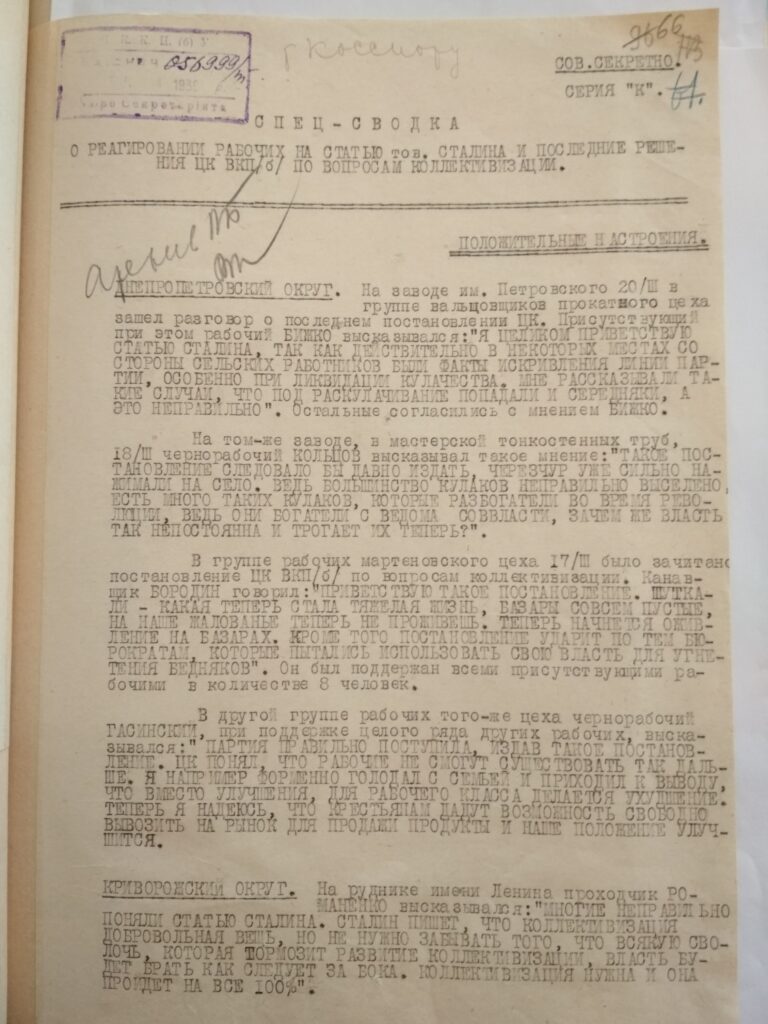72
March 5, 1933
Report of the investigative department “Х.22” on horrible scarcity of food supplies and high prices in Kharkiv
5.III.33/VI.
Dear Mr Olgerd.
[…] [1]
We have some true winter here, with heavy frost and snow. The population keeps increasingly more complaining about famine, there is hardly anything available for sale in the market, if anyone brings anything it would be promptly grabbed, regardless the price. We are now buying potatoes in the market, and the house lady needs to buy from several marketwomen to get some more because they sell it by piece, at 50 to 60 kop. per piece of middle size. There is constant lack of flour, meat, and lard in Torgsin; as to potatoes, we have been struggling to get it for quite some time, and they can’t deliver. Horses keep dying in the streets. Some people have not even received their salary for December. To cut a long story short, it’s a true paradise, indeed!
Best wishes, Olia Osmulska
CAW, Unit II of the Border Guard Service, I.303.4.2094, subfile W-36
[1] Fragments have been omitted if they were related to the fulfillment of intelligence missions and links in the consulate.



The document is a report of the Second Intelligence Division of the Border Guard Service of Poland in Kharkiv on the economic and food supply situation in the city as of the beginning of spring 1933. When analyzing this text, we need to consider that the events in question were taking place in the most critical time of the 1932-1933 Holodomor. The text of the document allows for an analysis of the conditions of survival of the urban population, the peculiarities of food supply for the staff of a foreign (Polish) consulate, and domestic animals.
The document focuses on the accessibility of food supplies in the urban market that could be bought only by the piece because of severe deficit and high prices (for example, this is how potatoes could be bought). According to complaints from the staff member of the Polish consulate in Kharkiv, Olia Osmulska, the limitations made their house cook buy potatoes from several salesladies. The document’s author highlights the fact that the scarcity of food products was also common for the public food retail chain, the TORGSYN. The primary objective of the chain was to sell goods to foreign nationals, but in the conditions of famine, it actually became a government tool for mass expropriation of money, precious metals, and jewelry from the starving citizens who had to exchange them for bread and other food. The document also illustrates that at the moment of drafting the report, some consulate staff had had several months’ delays in salaries. When describing the everyday routines of Kharkiv citizens, the author emphasized the dramatic situation in provisions for domestic animals, such as horses, who had high mortality for the lack of feed.